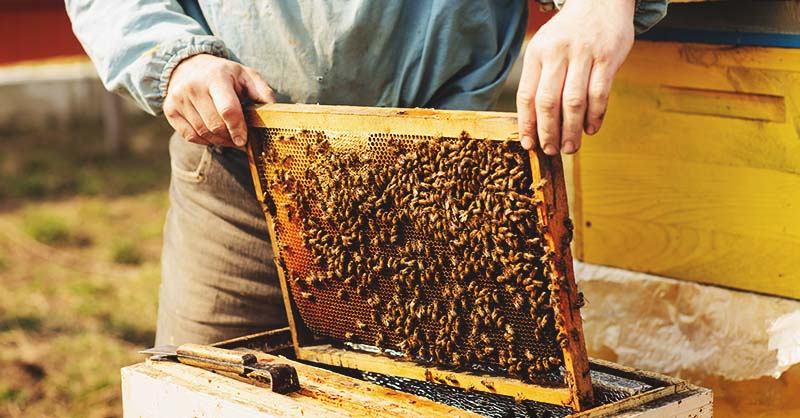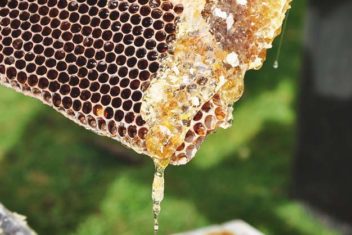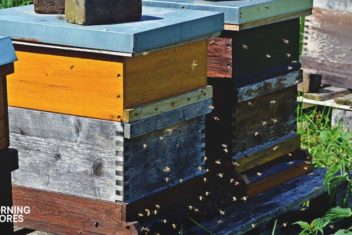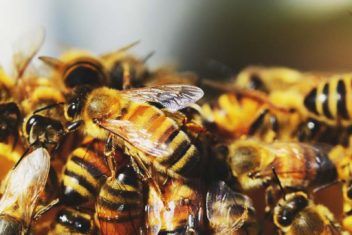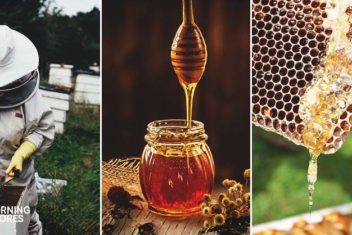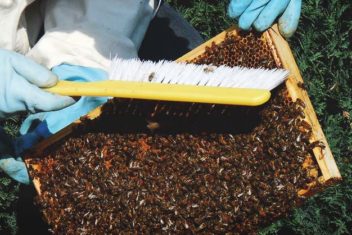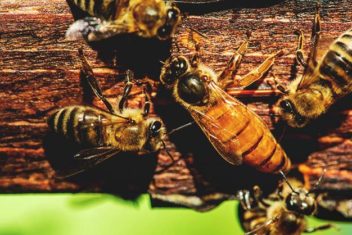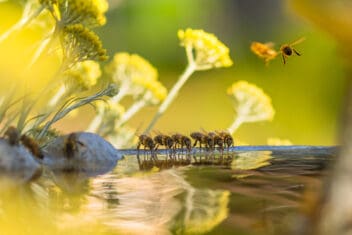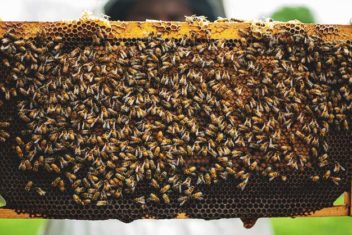Whether you have a small colony of bees or a thriving operation, many people and companies would love to rent your bees for Pollination Services, and pay you handsomely in return.
Not only that, but if you live in a climate that experiences harsh winters, you may want to consider the idea of wintering your bees in a milder environment to prevent loss. Not having to worry about feeding your bees during the winter, could be great for both you and your colony.
So, should you rent your bees out? Read on to learn more about who rents bees and the pros and cons of placing your hives in the hands of strangers.
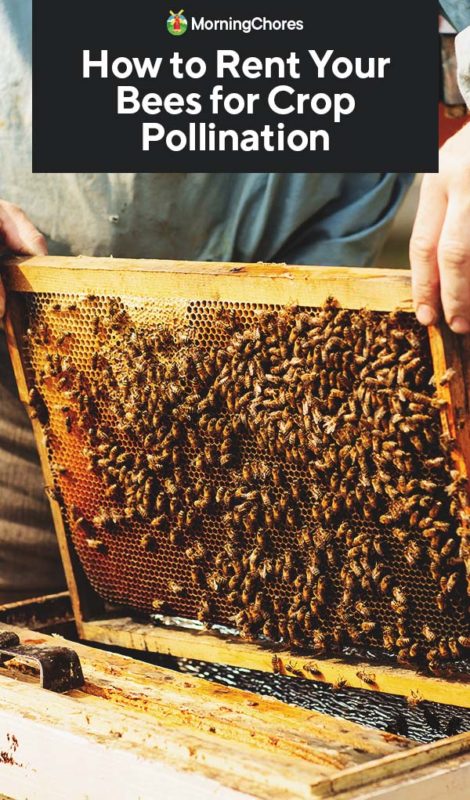
Why Do People Rent Bees (and who are they)?
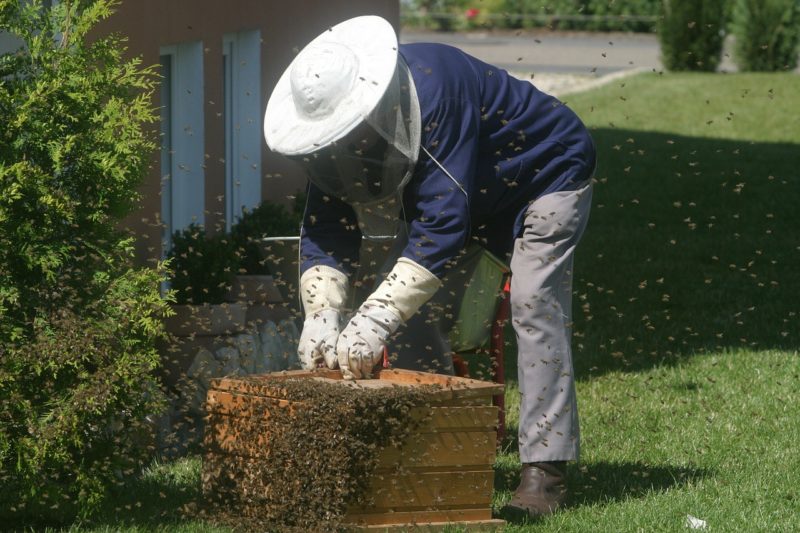
If you are new to the idea of renting your hives to others, you may be surprised that there are actually plenty of reasons someone will pay you to borrow your hive.
1. Individuals
Remember when you started thinking about beekeeping? There were so many things to consider before you jumped into the beekeeping world. Wouldn’t it have been nice to have an opportunity to do a trial run before you purchased all the equipment?
People who aren’t sure if beekeeping is right for them would appreciate having a trial period to see if it’s something they will enjoy.
Some beekeepers have set up a business plan around renting bees to individuals who want to try their hand at beekeeping. Usually, there is a minimum of a one-year commitment from the renter to care for the bees.
Some bee-rental businesses do take care of the transportation, extraction, and packaging for the renter, so there is also the benefit of learning from a professional beekeeper.
2. Restaurants and Chefs
Restaurants and chefs love being able to serve locally sourced honey to their patrons, and knowing where that honey is coming from is just another feather in their chef’s hat.
Similarly as an individual renter, a restaurant rents the hive and keeps it on their private property.
3. Pollinator Brokers
Yes, there is such a thing as a pollinator broker who arranges pollination services! So, if you are looking for a new career path with bees, and you are good at managing sales and writing up contracts, this may be an option.
Pollinator brokers work between beekeepers and agricultural companies that need bees to keep the health of their crops up to par. Large operations usually need more bees that are available in the wild to pollinate their crops; thus, they need to find them somewhere else.
Small farmers may decide to start their own colonies, because they may have the bandwidth to manage a colony (and don’t mind the extra honey income).
But larger-scale operations just don’t have the time, manpower, or even budget to start a colony. So rental becomes one of the best options for them.
When a company needs a large number of hives, they hire a broker to do the leg work for them. The broker negotiates fees and a pollination services contract with the beekeeper, arranges transportation, and other odds and ends, so the more prominent businesses don’t have to spend the time on finding and organizing a pollination program.
4. Crop Growers and Farmers
Instead of the broker, often crop growers will reach out to large, and sometimes small-scale beekeepers to work out a rental agreement.
Some growers that need pollinators are:
- Almond Growers
- Apple Orchards
- Cucumber
- Pumpkins
Since their crops have a small time window during which to be pollinated, renting bees during that time is a viable solution.
How Much Money Can You Make From Renting Your Bees Out?
How much you profit from renting your bees to others depends on a lot of different factors, but a quick search across the internet will give you a wide range of prices.
Factors you need to take into consideration before you set a price are:
- Will you be paying for the transportation
- Will you be getting the honey
Some will pay as little as $180 to rent a hive, while others are willing to spend up to $1,200. A lot of what you make will depend on the details and your negotiating skills. If you are working with a broker, they will most likely do their best to negotiate a fair agreement.
Pollination Services Agreements and Terms
As with most partnerships, there need to be some rules set up to protect your hive and yourself. If you are working with a large-scale operation, expect to have a pollination agreement in place.
Things that you might want to include are:
- No pesticides or herbicides within X distance of your hive
- Location of the hive (will it be moved)
- The number of frames, bees, etc.
- Name of companies or individuals renting
- Agreed upon fees
- Ability to check in on your bees (audit) and what actions will take place if the inspection is not passed
Pros of Renting Out Your Bees
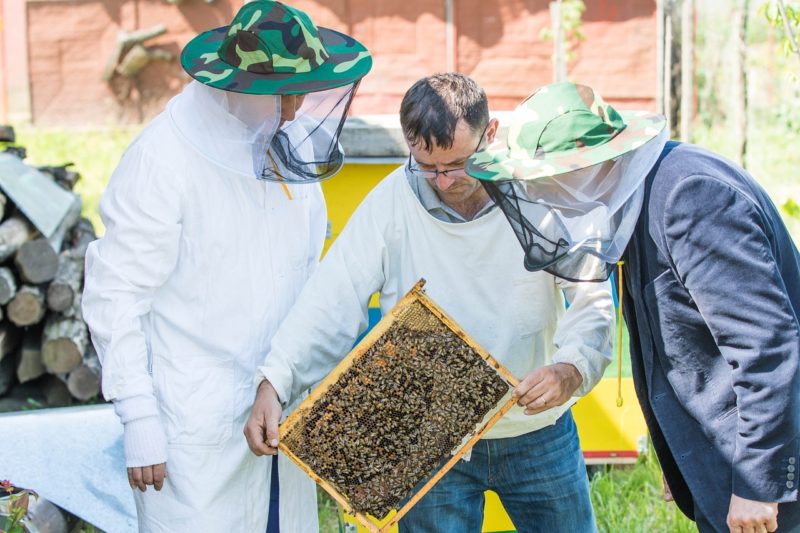
Ok, so now you need to decide if renting your hive out is a good option for you. So, to help you decide here’s a rundown of some of the pros to consider before making your decision.
- Bees don’t have to weather harsh winters
- There is the possibility of a substantial profit
- By renting bees, you are helping the environment
- You are helping others learn how to manage a hive before they go all in
- Growers benefit from your bees during their short pollination period
Cons of Renting Out Your Bees
Are you willing to let your bees go to someone else? I think this is one of the most important questions to ask yourself. At the end of the day, you are putting your hive’s health in the hands of a stranger. Here are some of the cons to consider:
- Crop may not be the most beneficial to your bees: Pumpkin and Cucumber crops are not the most nutritious for bees (so companies tend to pay more)
- You don’t know what condition your hive will return in
- Transportation can be tough on bees
- You don’t know the current condition of the crop (enough blooms for your bees)
- Bees may get left behind and die off without their hive
- Your bees may become exposed to herbicides or pesticides
- If there are other hives from other beekeepers, they may be exposed to diseases or mites
It may be worth it for you, and your bees, to have them overwinter in a milder climate and going about their business as usual.
Making money from honey, wax, queen rearing, selling off a split hive and even propolis may keep you busy enough and ensures your beehive remains a valuable commodity.
Adding the additional income of pollination services to the benefits of owning a beehive, may be just the ticket. But there are a lot of things to consider…so, do the pros outweigh the cons for you?
